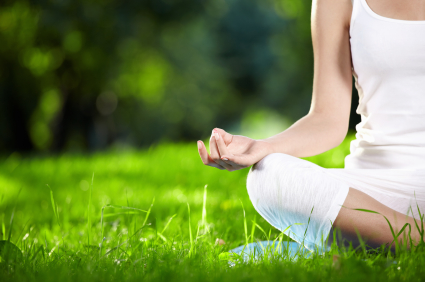All of what might be called the wisdom traditions of natural medicine (Ayurveda, Chinese Medicine and Naturopathic Medicine) agree that your health is an expression of how you live your life. If your life is out of balance, eventually your health will be out of balance as well. If you desire to make a lasting change in your health, you have to be willing to change how you live. This basic fact is often the biggest hurdle for the mind to overcome before allowing healing to take place. By itself, the body would be fine – it’s an expression of wisdom beyond comprehension. Unfortunately, our bodies have to put up with us. We are far more used to doing things to our bodies rather than for our bodies. Our ignorance of the laws of health coupled with our obsessive needs and addictive tendencies are an infliction upon our bodies, causing the imbalances we call disease. If we can align our lifestyle with our intent to become well, we set the stage for healing.
The exact nature of the change required to create the conditions for health is always unique to the particular individual. Yet, there are places to look that will consistently help:
Diet – This is always a good place to start. If you really wish to get well or attain the best health possible, you may well have to make some dietary changes. Our addictive tendencies often shape our diets. How many people turn to junk food for solace after a long, hard day? How about after a stressful meeting or an unpleasant confrontation? Or, did you simply grow up eating the typical American diet high in artificial foods?
In a very literal sense, your body is “made from” the food you eat. On a microscopic level, your cells are continually remodeling, renewing and replacing themselves. They require a constant stream of nutrients in order to accomplish this feat.
Beyond just consuming the required nutrients, however, are some finer points. One of the basic gifts of Ayurveda to the world is the concept of the individual constitution, and a refined sense of the diet and lifestyle that supports balanced health for any specific individual. The “healthy” foods that help balance one person may push another to an imbalanced state.
Digestion – A good digestion is silent. There is no feeling in the abdomen other than pleasant warmth after meals. If there is gas, bloating, crampy pains, nausea or heartburn, your body is telling you that it can’t handle either your choice of foods, or how you consumed them. If you eat while you’re working, stressed out, on the run, standing up or driving, your body may not be able to properly digest any food, no matter how well chosen.
It’s one thing to eat good food, and another to properly digest and assimilate it. For example, there are many online proponents of raw diets who insist that we should always eat raw foods, as these contain the highest amount of vitamins, minerals, enzymes, etc. Neither Chinese nor Ayurvedic medicines promote raw food consumption because they consider them to be indigestible in the short-term and damaging to the digestive fire in the long run. Raw foods require much more effort from the digestive tract. Cooking foods begins the digestive process, which then just has to be finished by the body.
Poorly digested foods are a prime source of toxicity. The ancient healing traditions used cleansing as one of their primary methods of healing long before the industrial revolution introduced its toxic spew into our environment. In Ayurveda, undigested food creates ama, a leading cause of disease according to that system.
Elimination – A full and complete evacuation of the bowels at least once daily is essential to reduce the toxic load on the body. When there is constipation, there is the opportunity for toxic materials (ama) from the stool to be absorbed into the blood. The accumulation of toxic materials “gums up the works” inside the body, blocking the free flow of nutrients to and metabolic wastes from the cells.
Sleep – There are many people who consider sleep to be a waste of potentially productive time. I shake my head whenever I hear nonsense such as this. The Chinese concept of yin and yang is useful to illustrate the importance of sleep. During the day (yang time), we are active and productive, which every American values. We don’t realize that all of this activity is destructive to the body. Consciousness itself requires using up of fuels. When we burn the candle at both ends, we soon end up “burned out”, an apt metaphor for this condition.
Sleep is the balancing yin to the yang of activity. During sleep, the “you” checks out, and finally the body can have a little peace. The liver, the most yin of all organs, uses this time to rebuild and repair the damage done to the body during the day. It’s also the time when it can most fully cleanse the blood, just as the janitor can better clean the office when all of the workers have gone home. The liver’s activity appears to peak from the hours of nine o’clock to around two in the morning. This adds weight to Ben Franklin’s dictum of “Early to bed and early to rise” as the path to health, prosperity and wisdom.
The best example of this is getting fit through exercise. The exercise itself tears the muscles down. It’s during sleep that the muscles are repaired, and made a little stronger to better withstand the next effort. If there is only exercise without adequate sleep, the athlete soon wears down and feels awful. Indeed, with all of the supplements and super foods out there designed to boost the effects of exercise, all experts agree that getting adequate sleep is by far the most important thing to help you get the most out of your workouts.
Exercise – I recently heard the apt axiom “Sitting is the new smoking”. The healthy human body is a system of flow. The sitting human body is subject to stagnation. Water imagery is helpful here. A healthy body is a clear, flowing stream. Exercise is the pump that keeps the stream moving along. Sitting clogs up the flow and creates stagnant waters. Stagnant water soon becomes brackish and filled with algae. Picture that happening inside your body the next time you choose to stay home rather than go out for a walk, or whatever it is you like to do to get your body, and waters, moving.
Peace – Besides exercise, peace is the other creator of flow. What happens to your body when you suffer from prolonged stress? You may find your shoulders hunched up around your ears, or your toes curled inside your shoes. This sort of tension contributes to the stagnation of flow within. It also contributes to unhappiness, one of the main causes of disease in itself. Furthermore, prolonged stress creates an inflammatory climate within.
Stress may well be the biggest impediment to healing. It goes without saying that many people are traumatized to one degree or other, and therefore find peace that much harder to come by. This is nothing to make light of, but it just underscore the importance of releasing the past in order to heal in the present. I always encourage people to take up practices such as yoga, tai Qi, meditation, or whatever works for them. Having a spiritual focus is invaluable, as it connects people to the eternal source of peace everlasting and gives our trials meaning.
-
 Mar292016
Mar292016Setting The Stage for Healing




